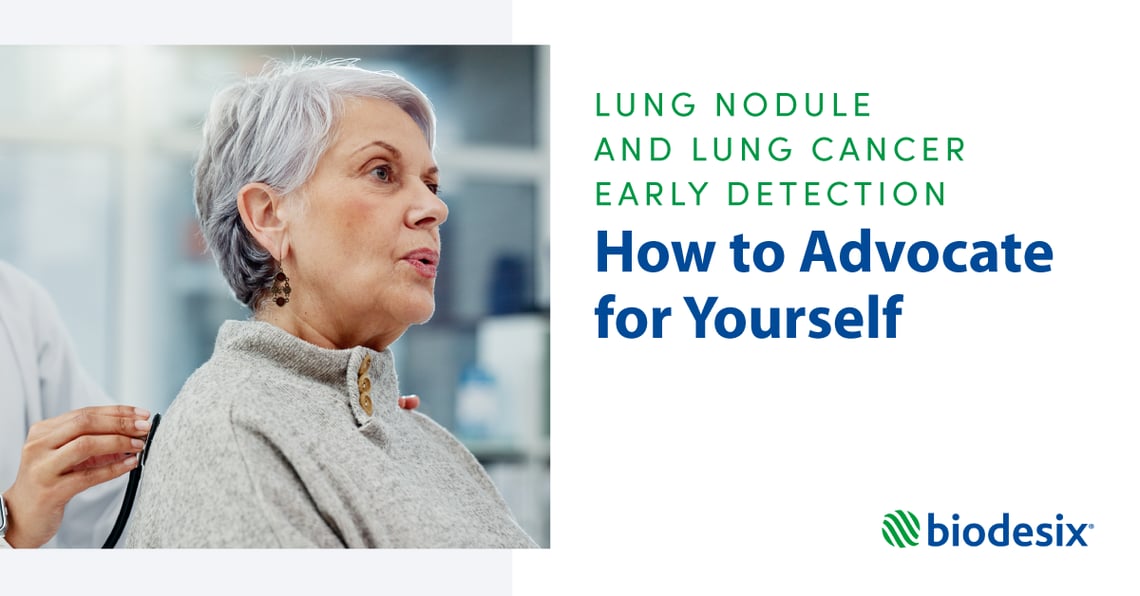Lung Nodules and Lung Cancer Early Detection – How to Advocate for Yourself
Being your own advocate in your health journey is empowering. It's about taking an active role in your health decisions, staying informed, and speaking up about your concerns or questions. When it comes to lung nodules and early detection of lung cancer, advocacy becomes even more vital. Here's a guide on how you can advocate for yourself:
- Educate Yourself
Knowledge is your most potent tool. Begin by understanding what lung nodules are – small growths or spots found on the lungs typically during lung screening or a chest X-ray or CT scan for other medical purposes. Most lung nodules are benign (non-cancerous), but some can be early indicators of lung cancer. Learning about the risks, symptoms, and the latest in diagnostic procedures can give you confidence when discussing concerns with your physician.
- Prioritize Regular Screenings
If you're at a higher risk for lung cancer – perhaps due to a history of smoking, exposure to certain toxins, or a family history – consider talking to your doctor about regular lung screenings. Early detection can often lead to more effective treatments.
- Ask Questions
Never hesitate to ask your healthcare provider questions. Whether it's about a term you don't understand, the implications of a test result, or potential next steps, your health team is there to guide you. A list of questions during visits can be handy.
- Know the Latest in Testing
Technologies like the Nodify Lung® testing can help doctors reclassify the risk of malignancy in patients with suspicious lung nodules. Ask your doctor whether or not you'd be a candidate for such testing and how it might benefit you.
- Keep Records
Maintain a personal health record, noting dates of tests, results, appointments, and any symptoms you might experience. This documentation can be invaluable in tracking your health over time and ensuring you receive timely care.
- Ask About a Specialist
If you're ever uncertain about a diagnosis or recommended treatment, ask if you should speak to a specialist. Another perspective can offer additional clarity or even present alternative options.
- Build a Support System
Connect with friends, family, or support groups who can offer emotional backing, accompany you to appointments, or help research and understand your condition. Sharing your experiences and feelings can be therapeutic.
- Stay Positive and Proactive
While it's natural to feel overwhelmed at times, a proactive mindset, combined with a strong knowledge base, can make you feel more in control. Remember, early detection and intervention are key. Being proactive can make a significant difference in your health and can even help reduce anxiety.
Remember, advocating for oneself is an ongoing process, and it starts with open communication. Always ensure that you and your healthcare provider are on the same page, working collaboratively towards the best possible outcome. Your voice matters, especially when it comes to your health.



